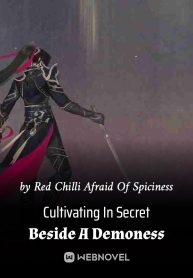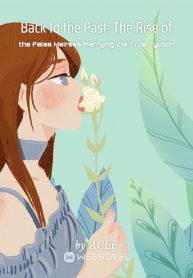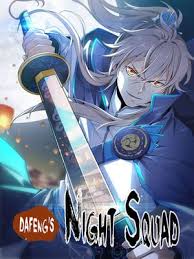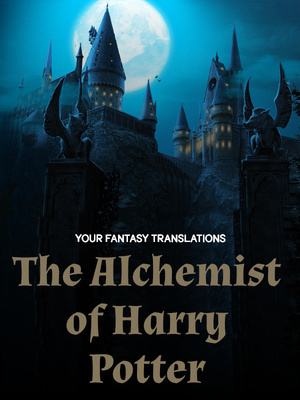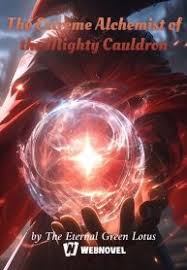Chapter 222: Dangerous Primitive Era
What's wrong? How dare you ask me what's wrong?
Looking at the old primitive man in front of him, who was known for his wisdom but now looked at him with concern and innocence, Han Cheng didn't know what to say or how to express his feelings.
This
The reversal was too significant, and the turn was too abrupt.
Caught off guard, even a seasoned driver like him was overturned
"It's it's nothing"
Han Cheng smiled forcedly, his expression somewhat stiff because he didn't know what to say.
"Then the rabbits?"
From the Divine Child's reaction, the shaman confirmed that his idea was not feasible. However, he still had some lingering doubts and wanted to confirm again because if this thing succeeded, it was too tempting.
After Han Cheng recovered, he felt a mix of crying and laughter. He didn't expect such a thing to happen to the shaman.
But he quickly stopped smiling because he sensed danger from what seemed like childish behavior.
In order to test if rabbits could be planted and harvested, the shaman buried his favorite black-eyed rabbit.
If this idea were applied to people
Han Cheng dared not think further, fearing that the shaman might come up with
planting him in spring and harvesting many Divine Child in autumn.
To avoid being suddenly treated as a seed by the benevolent shaman for the tribe while he was sleeping, Han Cheng did his best to prove the error of this matter and dispel the shaman's terrifying idea.
Otherwise, it would be too dangerous.
God knows how the shaman came up with this terrifying idea from burying wood.
Is it as imaginative as he got from "The Charcoal Seller's Father"?
"Shaman, you can't"
Han Cheng solemnly began to enlighten the shaman.
He explained the rules of growth to the shaman in a way he could understand, emphasizing that only plants that initially grew in the soil could be treated in this way and nothing else.
There would be no other result if animals were forcibly buried in the soil apart from death and decay.
The shaman listened to Han Cheng's words and, after careful consideration, also felt that this method was not feasible based on what he had seen and heard over the years.
He was not a stupid person. He had been stubbornly trying to solve this problem and had fallen into the wrong path because this idea was too tempting, and he wanted the tribe to develop rapidly.
After Han Cheng's explanation and contemplation, he finally abandoned this tempting but impractical idea.
However, it was inevitable that he felt a sense of loss because this not only marked the failure of his thoughts over the past period but also meant that the rabbit he often fondled had died in vain.
Han Cheng, who had lived two lives, naturally noticed the shaman's low spirits.
Elderly people couldn't afford to indulge in such low spirits too often, so Han Cheng's tone changed to begin empathizing with the shaman.
He first praised the shaman's wholehearted efforts for the tribe's development and then focused on the hope for the tribe to become more prosperous and vital, emphasizing the tribe's expansion plan based on salt.
Then he listed the fish cages, rabbit traps, and exchange of pottery in the Green Sparrow tribe, which could bring in a large amount of wild meat, as well as the large-scale animal husbandry of deer, chickens, and rabbits, the cultivation of rapeseed and millet, and the future expectations.
Combining reality with such a big picture, the sad shaman suddenly became excited because his dream was shattered.
Yes, with so many good things in his tribe, it was inevitable that the tribe would grow and become stronger in the current situation.
So why should he feel down because of that unrealistic idea?
Watching the shaman, who had become cheerful again, laughingly pick up a rabbit and put it back in the rabbit cage, Han Cheng, the great Divine Child, quietly wiping the sweat from his forehead.
This primitive tribe was indeed dangerous enough. If one wasn't careful, they could be planted as seeds
Is it as imaginative as he got from "The Charcoal Seller's Father"?
"Shaman, you can't"
Han Cheng solemnly began to enlighten the shaman.
He explained the rules of growth to the shaman in a way he could understand, emphasizing that only plants that initially grew in the soil could be treated in this way and nothing else.
There would be no other result if animals were forcibly buried in the soil apart from death and decay.
The shaman listened to Han Cheng's words and, after careful consideration, also felt that this method was not feasible based on what he had seen and heard over the years.
He was not a stupid person. He had been stubbornly trying to solve this problem and had fallen into the wrong path because this idea was too tempting, and he wanted the tribe to develop rapidly.
After Han Cheng's explanation and contemplation, he finally abandoned this tempting but impractical idea.
However, it was inevitable that he felt a sense of loss because this not only marked the failure of his thoughts over the past period but also meant that the rabbit he often fondled had died in vain.
Han Cheng, who had lived two lives, naturally noticed the shaman's low spirits.
Elderly people couldn't afford to indulge in such low spirits too often, so Han Cheng's tone changed to begin empathizing with the shaman.
He first praised the shaman's wholehearted efforts for the tribe's development and then focused on the hope for the tribe to become more prosperous and vital, emphasizing the tribe's expansion plan based on salt.
Then he listed the fish cages, rabbit traps, and exchange of pottery in the Green Sparrow tribe, which could bring in a large amount of wild meat, as well as the large-scale animal husbandry of deer, chickens, and rabbits, the cultivation of rapeseed and millet, and the future expectations.
Combining reality with such a big picture, the sad shaman suddenly became excited because his dream was shattered.
Yes, with so many good things in his tribe, it was inevitable that the tribe would grow and become stronger in the current situation.
So why should he feel down because of that unrealistic idea?
Watching the shaman, who had become cheerful again, laughingly pick up a rabbit and put it back in the rabbit cage, Han Cheng, the great Divine Child, quietly wiping the sweat from his forehead.
This primitive tribe was indeed dangerous enough. If one wasn't careful, they could be planted as seeds
Primitive society was indeed dangerous. Just after Han Cheng's reflections, the person responsible for standing guard on the low wall shouted, "Someone's here! Someone's here!" and banged the gong.
The thatched grass on the back hill had already been harvested, and many tribe members were currently making hats for the low wall. When they heard the alarm, they didn't panic.
Eldest Senior Brother and the others quickly dropped their work and rushed to the front wall while Hei Wa quickly secured the tribe's gate from the inside.
The alarm was soon lifted because the visitors were from the Sheep Tribe.
The people from the Sheep Tribe brought a large number of furs, indicating they came to trade.
After some communication, the people from the Sheep Tribe left their weapons outside and brought the fur inside.
As expected, the Sheep Tribe was wealthy. Among the many furs they brought, there were primarily sheepskins!
Receiving visiting tribes for trade was generally the responsibility of the Eldest Senior Brother, the leader. Unless there were exceptional circumstances, Han Cheng usually wouldn't directly intervene. After all, how could he comfortably act as a behind-the-scenes manipulator like a big shot in open trading?
Han Cheng fantasized about positioning himself this way, having seen it too many times in his previous life.
This time, the leader of the Sheep Tribe didn't immediately go to exchange pottery with the Eldest Senior Brother. Instead, he first went to the deer pen and leaned in to see the deer inside.
This group of deer had certainly brought pride to the Green Sparrow Tribe.
The saying "wealth cannot be brought back to one's hometown like a night-blooming cereus" was not spoken by the Eldest Senior Brother, but he did have such intentions.
Seeing the people from nearby tribes continuously surprised by the wealth of their tribe, the feeling was beautiful.
When he heard that the leader of the Sheep Tribe wanted to see their deer herd first, Eldest Senior Brother readily agreed.
The herd had added a few more calves during this time, making it even larger.
While the leader of the Sheep Tribe looked at the deer in the pen, the Eldest Senior Brother watched the leader of the Sheep Tribe. Seeing the expression of astonishment on the leader's face, Eldest Senior Brother smiled modestly.
The leader of the Sheep Tribe's astonishment was genuine. It was not only because of the large group of deer but also because of how fat and healthy they looked.
As someone who had been raising sheep for quite some time, the leader of the Sheep Tribe knew very well how difficult it was to achieve this.
When he saw the three snow-white, significantly grown lambs mixed among the deer in the pen, the look of astonishment on his face became even stronger. The difference between the sheep raised in his tribe and those in the neighboring tribe was too vast

